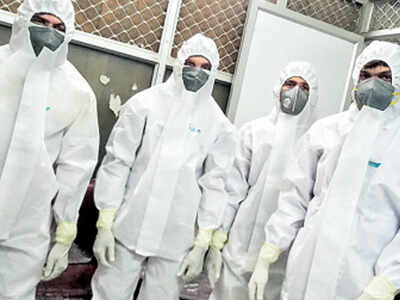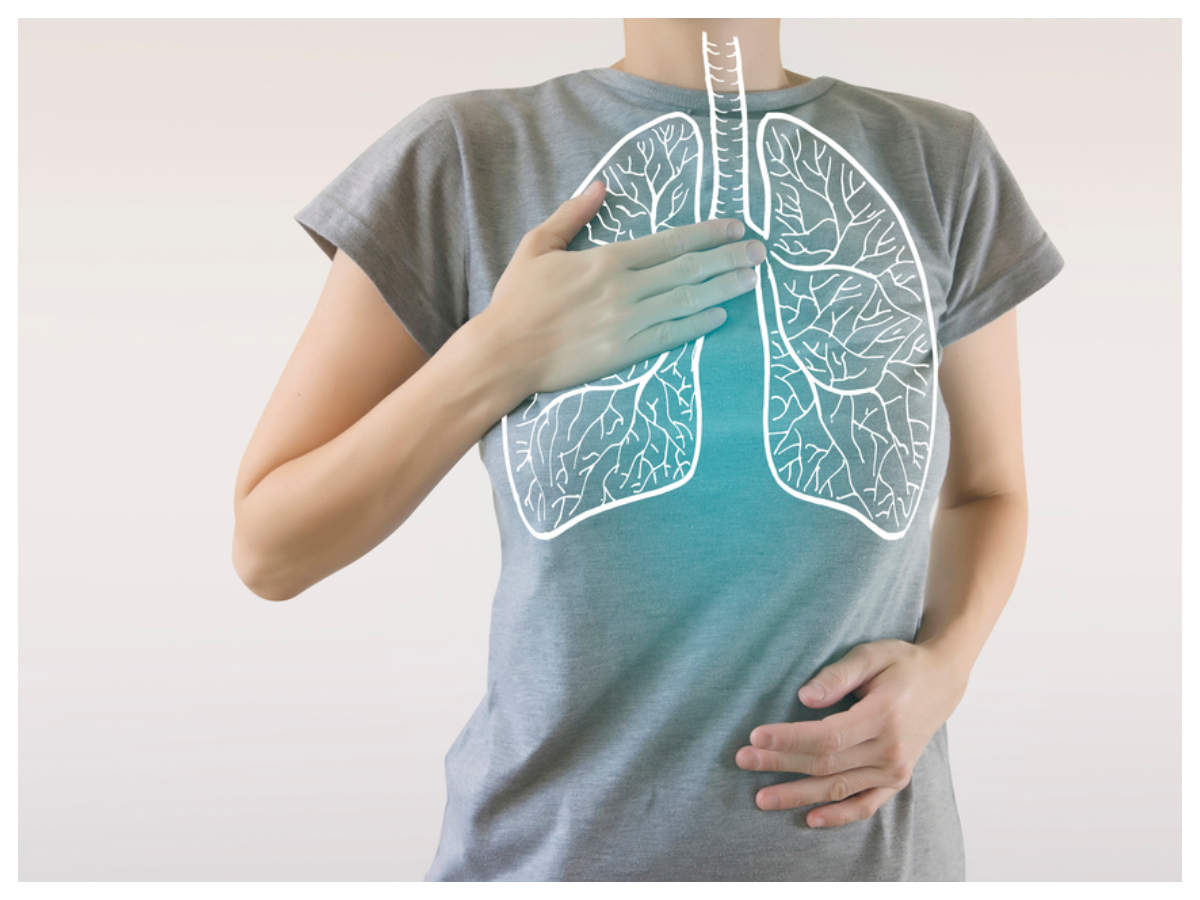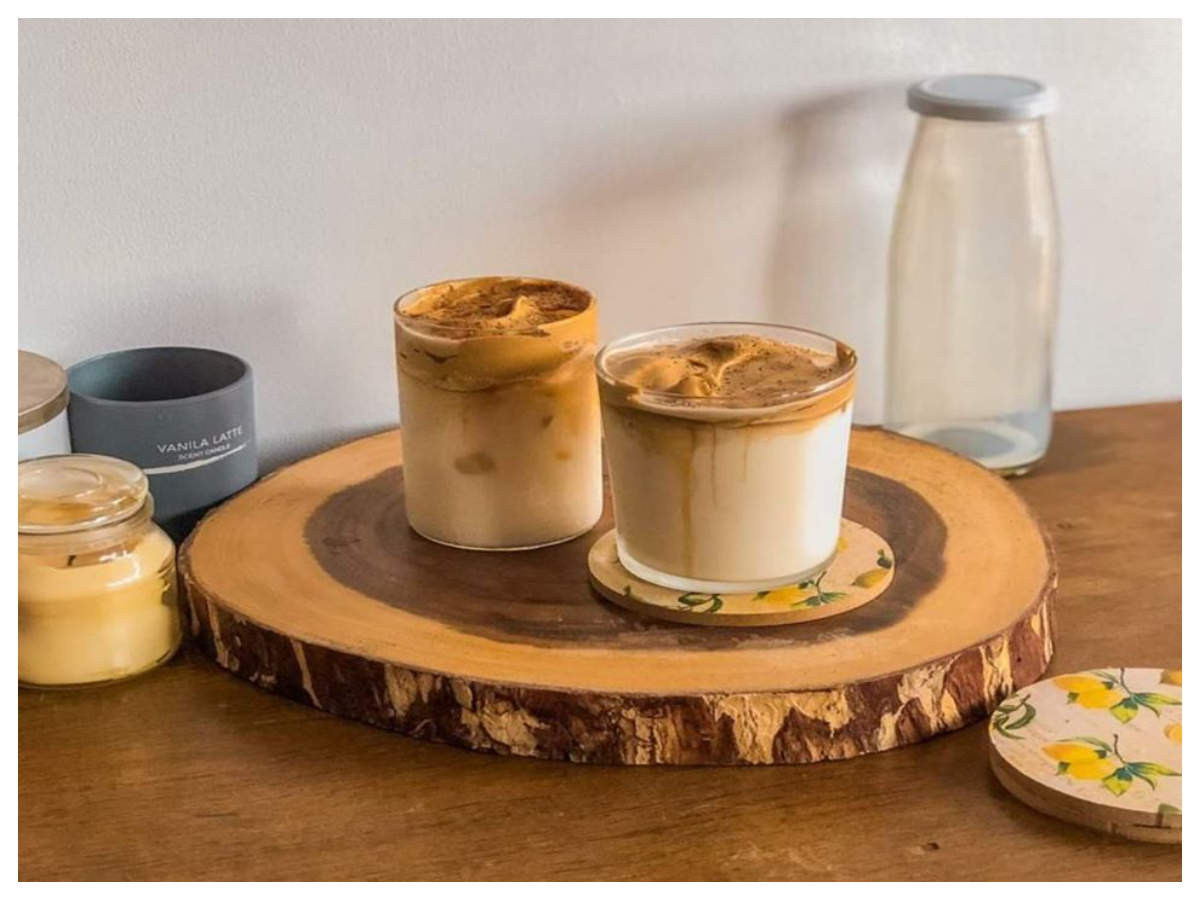
MUMBAI: Battling Covid-19 from the forefront is taking a physical toll, apart from the mental one, on resident doctors, nurses and other healthcare workers in city hospitals. Picture this: You have to spend six to eight hours in multi-layered clothing in a non-AC room full of Covid-19 patients – sometimes high-risk ones. The humid weather makes it worse, as you cannot even wipe your sweat. You cannot eat or drink in fear of contamination. Even if you are thirsty, you may have to go without water to ensure you do not get the urge to urinate.
For many healthcare workers (HCWs), the struggle of wearing personal protective equipment (PPE) and staying in it for 6-8 hours is nothing less than entering a manhole with safety equipment and staying there for long. Multiple layers of synthetic clothing adds to discomfort. “In between donning and doffing (removing) tPPE, it is advisable to not touch your face. If you are in ICU or high-risk wards, the entire suit could get contaminated. PPE suits are expensive and are insufficient in numbers. We cannot afford to waste it. We eat, drink and urinate before our shift starts. In fact, we cannot even drink enough water before the shift,” said a resident doctor from a civic hospital. At a leading hospital, there is no proper changing room for doctors. Resident doctors and nurses have to do menial work as ward boys do not get PPEs.
Fear of catching the virus is real. “We are human. Everyone is scared here. We fear passing it on to friends not on Covid duty. There is no separate accommodation for doctors on Covid and non-Covid duties. Once shifts are over, we go to our hostels, bathe, clean the room and everything we carry to hospital. Even if we are exhausted, we cannot drop our guard,” said another doctor. In some non-high-risk wards, the shifts goes on for 12 hours. Not every such ward gets PPE suits. Over 160 health workers have so far tested positive.
With canteens having restricted access or shut, getting healthy meals is a luxury. “There are no dabbawalas to get home-cooked food, and if we have odd hours, someend up skipping meals. Taj Hotels provide meals, but that is sometimes not enough. Food is becoming a concern. My shift ended at 7am one day, when I woke up at 3pm, lunch time was over,” said a doctor.
For many healthcare workers (HCWs), the struggle of wearing personal protective equipment (PPE) and staying in it for 6-8 hours is nothing less than entering a manhole with safety equipment and staying there for long. Multiple layers of synthetic clothing adds to discomfort. “In between donning and doffing (removing) tPPE, it is advisable to not touch your face. If you are in ICU or high-risk wards, the entire suit could get contaminated. PPE suits are expensive and are insufficient in numbers. We cannot afford to waste it. We eat, drink and urinate before our shift starts. In fact, we cannot even drink enough water before the shift,” said a resident doctor from a civic hospital. At a leading hospital, there is no proper changing room for doctors. Resident doctors and nurses have to do menial work as ward boys do not get PPEs.
Fear of catching the virus is real. “We are human. Everyone is scared here. We fear passing it on to friends not on Covid duty. There is no separate accommodation for doctors on Covid and non-Covid duties. Once shifts are over, we go to our hostels, bathe, clean the room and everything we carry to hospital. Even if we are exhausted, we cannot drop our guard,” said another doctor. In some non-high-risk wards, the shifts goes on for 12 hours. Not every such ward gets PPE suits. Over 160 health workers have so far tested positive.
With canteens having restricted access or shut, getting healthy meals is a luxury. “There are no dabbawalas to get home-cooked food, and if we have odd hours, someend up skipping meals. Taj Hotels provide meals, but that is sometimes not enough. Food is becoming a concern. My shift ended at 7am one day, when I woke up at 3pm, lunch time was over,” said a doctor.

Coronavirus outbreak
Trending Topics
LATEST VIDEOS
More from TOI
Navbharat Times
Featured Today in Travel
Get the app









